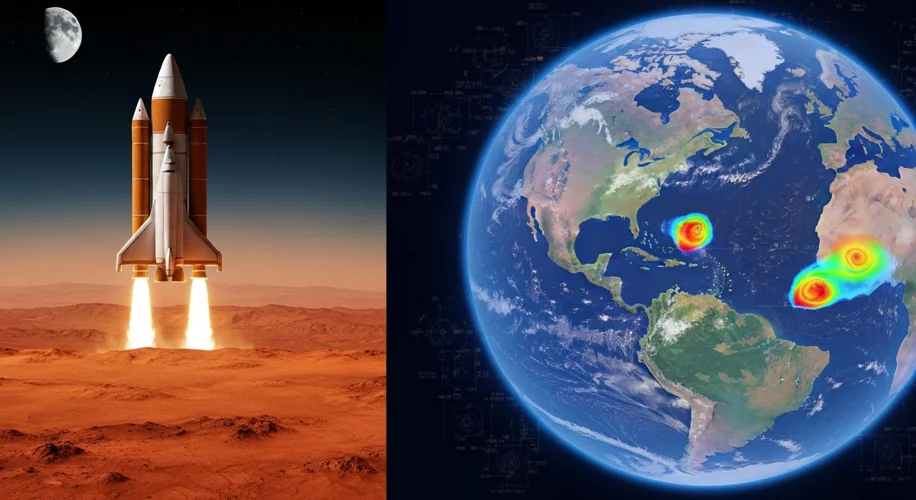Today, August 21, 2025, brings news about a significant shift in NASA’s priorities. Acting Administrator Sean Duffy has indicated that the agency plans to “move aside” from climate sciences to concentrate more on exploring the Moon and Mars. This announcement has sparked conversations and, for many of us in the science community, raised some important questions about the future of NASA’s Earth science missions.
For years, NASA has been at the forefront of studying our own planet. Think about the incredible data gathered by satellites observing atmospheric changes, ocean currents, ice sheet melt, and so much more. This research isn’t just about understanding complex Earth systems; it’s vital for informing policy, predicting weather patterns, and helping communities prepare for environmental changes.
As someone with a background in atmospheric science, I’ve seen firsthand how crucial NASA’s Earth-observing capabilities are. The detailed measurements of greenhouse gas concentrations, the tracking of deforestation, and the modeling of climate impacts all rely on the kind of long-term, comprehensive data that agencies like NASA provide. It’s this data that helps us understand not only what’s happening to our planet but also why, and what we can do about it.
The pivot towards lunar and Martian exploration is, of course, incredibly exciting. The scientific discoveries awaiting us on these celestial bodies are immense, promising to expand our knowledge of the universe and our place within it. Pushing the boundaries of space exploration is a hallmark of human curiosity and innovation.
However, the suggestion that NASA might step back from Earth sciences raises concerns. Our planet is also a frontier, one that presents unique challenges and mysteries. Understanding Earth’s climate is not separate from exploring space; in many ways, it’s foundational. Studying other planets helps us understand Earth better, and understanding Earth helps us appreciate the unique conditions that allow life to thrive here.
This shift raises a question for all of us: what does this mean for the continuity of critical Earth science research? How will future climate modeling, disaster prediction, and environmental monitoring be supported? It’s a complex issue, and while the allure of other worlds is undeniable, the importance of understanding our own world remains paramount. It’s a balance we’ll need to watch closely.

